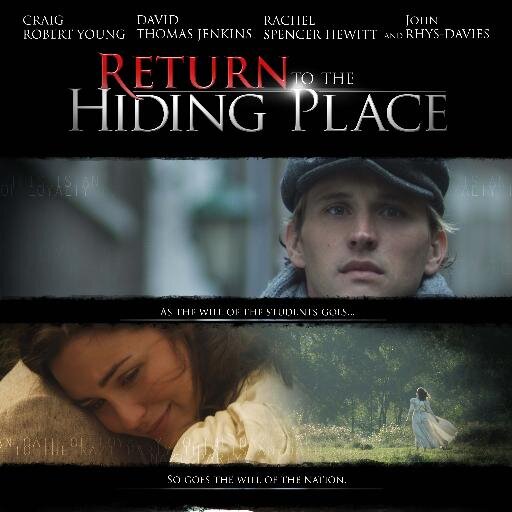NEW YORK — When you think about heroes of the faith, Billy Graham, John Wesley and others may come to mind. But in the film “Return to the Hiding Place,” the sequel to “Hiding Place,” viewers are given an intriguing look into the sacrifice of Corrie ten Boom, a brave woman who risks her life to help Jews escape the Nazi Holocaust. The film’s lead actress, Rachel Spencer-Hewitt, opens up to The Christian Post about the impact that powerful women such as ten Boom can have on the generations to come.
“Return to the Hiding Place” chronicles a time in history when Nazis begin killing Jews in Holland and a group of youth fight to save the innocent. Spencer-Hewitt plays ten Boom’s niece, Aty Van Woerdan, who is part of the student resistance against the Nazis and is engaged to the resistance leader.
Among the students is Hans Poley, an intelligent young physicist who finds refuge with ten Boom after refusing to join the Nazis. “Return to the Hiding Place” is inspired by Poley’s book of the same name. Poley and his friends begin their resistance movement at their university, which eventually leads to the transportation of Jews to ten Boom’s hiding place.
This was a passion project for Spencer-Hewitt and her family. Her father, Peter Spencer, became best friends with Hans Poley and purposed himself to make a movie of their story. For Spencer-Hewitt the fact that her dad both wrote and directed the film had nothing to do with her landing the lead female role. Her performance and zest for the character won over casting directors.
“Corrie ten Boom was a household name for us, she was totally of hero of mine,” Spencer-Hewitt said. “My parents raised very strong women, with my sister and I, and it was never a negative thing in my house. I am very thankful for that because I don’t think that every girl has that opportunity to be unapologetic for who she really is and I think that only makes her stronger in her faith.”
Spencer-Hewitt and her entire family were involved in “Return to the Hiding Place” and she said her character, Woerdan, really allowed her to be the bold, godly woman she was raised to be.
“I think that had so much to do with my parents feeling like this is who God made us to be. Being unashamed of that was a big deal and I think Corrie ten Boom has a lot to do with being a leading example. What this film does, and what it did for me as an actress, was allow me to play a role that was just as unapologetic,” she continued.
Spencer-Hewitt maintained that it is rare for a Christian woman to be portrayed as an innovator or pioneer in a film.
“I feel like the women are often written a bit two dimensionally, and even if they’re lovely people it’s like where’s the agency? Where is their ability to change the plot line? To change the dynamics and be powerful, be strong and still be total servants of Christ at the same time?”
Spencer-Hewitt had to reenact a scene in which Woerdan stands face-to-face with a Nazi soldier, looks him in the eye, and contradicts what he says in order to protect the orphan children she has taken under her care. The Texas native said she was greatly inspired because Woerdan had no idea what would happen to her, but she did it anyway.
“I remember being really shaken up after that scene. That was a life changing moment for me, to think I’m lending my voice to this person who used hers for so much good. It made me really sensitive to how I used my own after that point,” she recalled. “I’m so thankful to the film until this day because it became a standard for me of what a film should be. Of what a female character should be and what she should be able to say.”
Spencer-Hewitt said, as Christian women, people always reference Esther as the standard for a godly woman. However, there have been many others who have put their lives on the line for the greater good, and that is a message she wants to promote.
BY JEANNIE LAW, CALLED FROM CHRISTIAN POST





